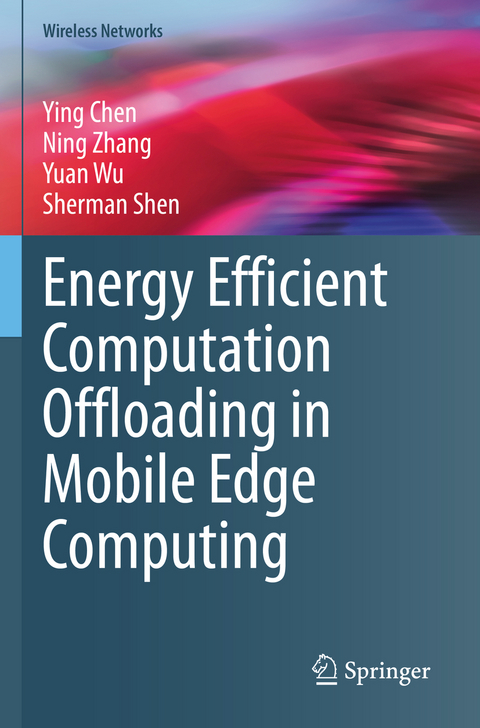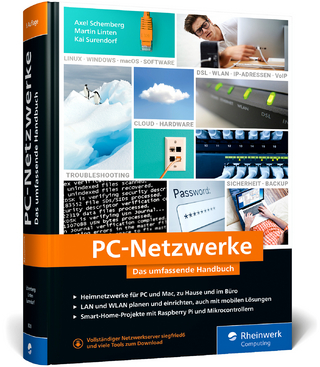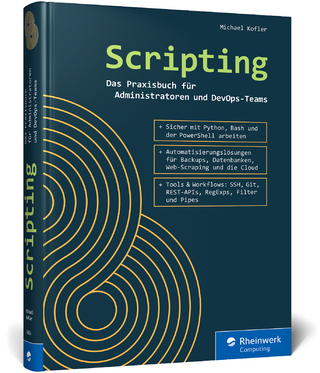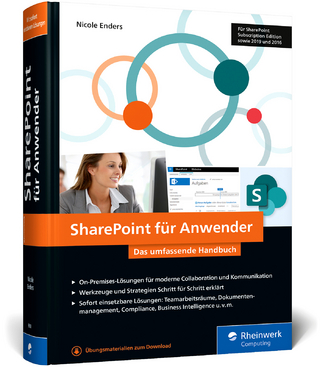
Energy Efficient Computation Offloading in Mobile Edge Computing
Springer International Publishing (Verlag)
978-3-031-16824-6 (ISBN)
Researchers working in mobile edge computing, task offloading and resource management, as well as advanced level students in electrical and computer engineering, telecommunications, computer science or other related disciplines will find this book useful as a reference. Professionals working within these related fields will also benefit from this book.
lt;b>Ying Chen received the BEng degree from the School of Computer Science, Beijing University of Posts and Telecommunications, Beijing, China, in 2012, and the PhD degree in computer science and technology from Tsinghua University, Beijing, in 2017. She is currently an associate professor with Computer School, Beijing Information Science and Technology University, Beijing. She was a joint PhD student in University of Waterloo from 2015 to 2016. She is the recipient of the Best Paper Award at IEEE SmartIoT 2019, 2016 Google Ph. D Fellowship Award and 2014 Google Anita Borg Award, respectively. She is the TPC member of IEEE HPCC, and PC member of IEEE Cloud, CollaborateCom, IEEE CPSCom, CSS, etc. She is also the reviewer of several journals such as IEEE Transactions on Dependable and Secure Computing, IEEE Internet of Things Journal, IEEE Transactions on Computers, IEEE Transactions on Cloud Computing, IEEE Transactions on Services Computing, etc. Her current research interests include mobile edge computing, wireless networks and communications, machine learning, etc.
Ning Zhang received the B.Sc. degree from Beijing Jiaotong University, Beijing, China, the M.Sc. degree from Beijing University of Posts and Telecommunications, Beijing, China, and the Ph.D. degree from the University of Waterloo, Waterloo, ON, Canada, in 2007, 2010, and 2015, respectively. After that, he was a postdoc research fellow at University of Waterloo and University of Toronto, Canada, respectively. He is now an Associate Professor in the Department of Electrical and Computer Engineering at University of Windsor, Canada. His research interests include connected vehicles, mobile edge computing, wireless networking, and machine learning. He has published over 180 refereed papers in international journals and conferences. He is a Highly Cited Researcher and on the World's Top 2% Scientists list by Stanford University. He serves as an Associate Editor of IEEE Internet of Things Journal, IEEE Transactions on Cognitive Communications and Networking, and IEEE Systems Journal; and a Guest Editor of several international journals, such as IEEE Wireless Communications, IEEE Transactions on Industrial Informatics, IEEE Transactions on Intelligent Transportation Systems, IEEE Internet of Things Journal, and IEEE Transactions on Cognitive Communications and Networking. He also serves/served as a general chair for IEEE SAGC 2021, a TPC chair for IEEE VTC-Fall 2021 and IEEE SAGC 2020, a track chair for several international conferences including IEEE ICC 2022, IEEE IECON 2021, CollaborateCom 2021, IEEE VTC 2020, AICON 2020 and CollaborateCom 2020, and a co-chair for numerous international workshops. He received an NSERC PDF award in 2015 and 6 Best Paper Awards from IEEE Globecom in 2014, IEEE WCSP in 2015, IEEE ICC in 2019, IEEE ICCC in 2019, IEEE Technical Committee on Transmission Access and Optical Systems in 2019, and Journal of Communications and Information Networks in 2018, respectively. He has been a senior member of IEEE since 2018.
Yuan Wu received the B.Sc. degree and the M.Sc. degree from Zhejiang University in 2004 and 2006, respectively, and received the PhD degree in Electronic and Computer Engineering from the Hong Kong University of Science and Technology in 2010. He is currently an Associate Professor with the State Key Laboratory of Internet of Things for Smart City, University of Macau and also with the Department of Computer and Information Science, University of Macau. Prior to that, he was a Full Professor with the College of Information Engineering, Zhejiang University of Technology, Hangzhou, China. During 2016-2017, he was a visiting scholar with Department of Electrical and Computer Engineering, University of Waterloo. His research interests include resource management for wireless networks, green communications and computing, mobile edge computing, and smart
Introduction.- 1.1 Background.- 1.1.1 Mobile Cloud Computing.- 1.1.2 Mobile Edge Computing.- 1.1.3 Computation Offloading.- 1.2 Challenges.- 1.3 Contributions.- 1.4 Book Outline.- References.- 2 Dynamic Computation Offloading for Energy Efficiency in Mobile.- Edge Computing.- 2.1 System Model and Problem Statement.- 2.1.1 Network Model.- 2.1.2 Task Offloading Model.- 2.1.3 Task Queuing Model.- 2.1.4 Energy Consumption Model.- 2.1.5 Problem Statement.- 2.2 EEDCO: Energy Efficient Dynamic Computing Offloading for.- Mobile Edge Computing.- 2.2.1 Joint Optimization of Energy and Queue.- 2.2.2 Dynamic Computation Offloading for Mobile Edge.- Computing.- 2.2.3 Trade-off Between Queue Backlog and Energy Efficiency.- 2.2.4 Convergence and Complexity Analysis.- 2.3 Performance Evaluation.- 2.3.1 Impacts of Parameters.- 2.3.2 Performance Comparison with EA and QW Schemes.- 2.4 Literature Review.- 2.5 Summary.- References.- ix.- x Contents.- 3 Energy Efficient Offloading and Frequency Scaling forInternet of.- Things Devices.- 3.1 System Model and Problem Formulation.- 3.1.1 Network Model.- 3.1.2 Task Model.- 3.1.3 Queuing Model.- 3.1.4 Energy Consumption Model.- 3.1.5 Problem Formulation.- 3.2 COFSEE:Computation Offloading and Frequency Scaling for.- Energy Efficiency of Internet of Things Devices.- 3.2.1 Problem Transformation.- 3.2.2 Optimal Frequency Scaling.- 3.2.3 Local Computation Allocation.- 3.2.4 MEC Computation Allocation.- 3.2.5 Theoretical Analysis.- 3.3 Performance Evaluation.- 3.3.1 Impacts of System Parameters.- 3.3.2 Performance Comparison with RLE,RME and TS Schemes.- 3.4 Literature Review.- 3.5 Summary.- References.- 4 Deep Reinforcement Learning for Delay-aware and Energy-Efficient.- Computation Offloading.- 4.1 System Model and Problem formulation.- 4.1.1 System Mode.- 4.1.2 Problem Formulation.- 4.2 Proposed DRL Method.- 4.2.1 Data prepossessing.- 4.2.2 DRL Model.- 4.2.3 Training.- 4.3 Performance Evaluation.- 4.4 Literature Review.- 4.5 Summary.- References.- 5 Energy-Efficient Multi-task Multi-access Computation Offloading.- via NOMA.- 5.1 System Model and Problem Formulation.- 5.1.1 Motivation.- 5.1.2 System Model.- 5.1.3 Problem Formulation.- 5.2 LEEMMO: Layered Energy-efficient Multi-task Multi-access.- Algorithm.- 5.2.1 Layered Decomposition of Joint Optimization Problem.- Contents xi.- 5.2.2 Proposed Subroutine for Solving Problem (TEM-E-Sub).- 5.2.3 A Layered Algorithm for Solving Problem (TEM-E-Top).- 5.2.4 DRL-based Online Algorithm.- 5.3 Performance Evaluation.- 5.3.1 Impacts of Parameters.- 5.3.2 Performance Comparison with FDMA based Offloading.- Schemes.- 5.4 Literature Review.- 5.5 Summary.- Reference.- 6 Conclusion.- 6.1 Concluding Remarks.- 6.2 Future Directions.- References.
| Erscheinungsdatum | 31.10.2023 |
|---|---|
| Reihe/Serie | Wireless Networks |
| Zusatzinfo | XIV, 156 p. 38 illus. |
| Verlagsort | Cham |
| Sprache | englisch |
| Maße | 155 x 235 mm |
| Gewicht | 272 g |
| Themenwelt | Mathematik / Informatik ► Informatik ► Netzwerke |
| Technik ► Nachrichtentechnik | |
| Schlagworte | computation offloading • Dynamic channel access • energy efficiency • Energy harvesting • hybrid energy supply • internet of things • Mobile Edge Computing • stochastic optimization • Task Scheduling |
| ISBN-10 | 3-031-16824-0 / 3031168240 |
| ISBN-13 | 978-3-031-16824-6 / 9783031168246 |
| Zustand | Neuware |
| Haben Sie eine Frage zum Produkt? |
aus dem Bereich


